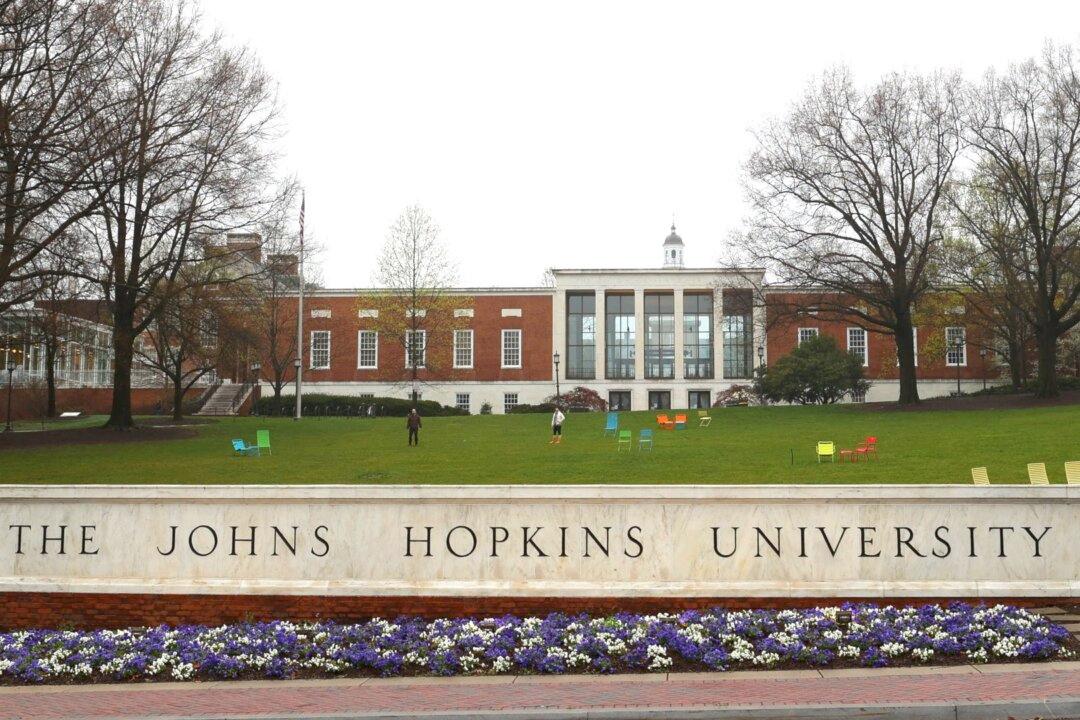Johns Hopkins University has been ordered to pay additional funds to students who paid tuition for the first semester of 2020 but didn’t get refunds after the university canceled in-person classes because of the COVID-19 pandemic.
The university in Baltimore was ordered on July 31 to pay $2 million into a settlement fund in a class-action lawsuit. U.S. District Judge Julie Rubin signed the order after the university and plaintiffs, led by former student Elena Botts, said they found more students who paid for the 2020 spring semester but did not receive refunds.





